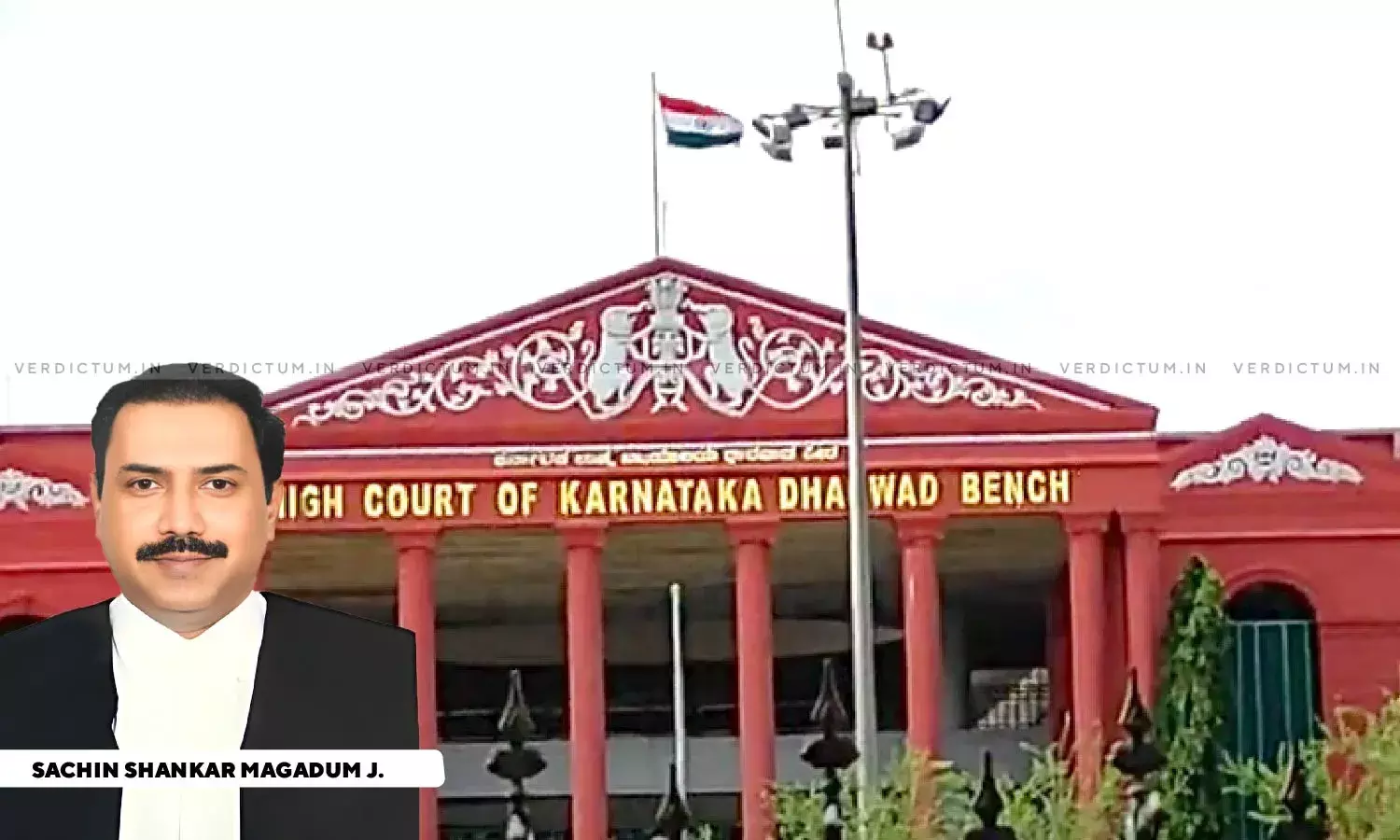KTEG Act| 'Prevailing Market Price' U/S 2A(8-a) Should Be Interpreted In A Manner That Aligns With Charging Provision U/S 3(1): Karnataka HC
The Karnataka High Court observed that the term “prevailing market price of such goods in the local area” as delineated in Section 2A(8-a) of the Karnataka Tax on Entry of Goods Act, 1979 should be interpreted to mean the value of the goods at the precise moment of their entry into the local area as envisaged by the charging provision under Section 3(1) of the KTEG Act.
Observing that this interpretation ensures harmonization between the charging provision and the definition clause, the Bench of Justice Sachin Shankar Magadum observed that, "the definition clause under Section 2A(8-a) of the KTEG Act must be construed harmoniously with the charging provision under Section 3(1) of the KTEG Act. The charging provision, being the substantive section imposing the tax, should hold primacy in determining the taxable value of goods, especially in cases of stock transfers. In elucidating these provisions, it becomes apparent that the crux of Section 3(1) lies in anchoring tax assessment to the value of goods at the time of their entry. Therefore, any reference to prevailing market price in Section 2A(8-a) should be construed as pertaining to the market value of goods contemporaneous with their entry into the local area."
A company filed petitions challenging the constitutional validity of Section 2A(8-a) of the Karnataka Tax on Entry of Goods Act, 1979, and disputed assessment notices from 2010 and 2014. These notices proposed reassessment and penalties for the years 2002 to 2009. The company also contested a 2017 assessment order for the year 2009-2010.
The company, registered under the Companies Act, 1956, manufactured and sold pan masala containing tobacco (gutkha). Initially operating in Kolhapur, they later moved to Belgaum. The goods were transferred to a local sale depot on a stock transfer basis. The Deputy Commissioner of Commercial Tax finalized assessments for 2002-2010 based on the company's entry tax returns.
The company argued that the entry tax should be levied based on the purchase price of goods entering the local area, as per the charging provision in Section 3(1) of the KTEG Act. This charging provision specifies how the tax should be calculated.
However, the definition clause in Section 2A(8-a) of the KTEG Act states that the value of goods for tax purposes should be the "prevailing market price of such goods in the local area." The company contended that this definition clause should not override the charging provision, arguing that the entry tax should be based on the purchase price when the goods were first brought into the local area, not on the market price at a later date.
The company asserted that any subsequent rise or fall in the price of goods should not affect the entry tax calculation. They claimed that the reassessments conducted by respondent No.5, which were based on the prevailing market price as per the definition clause, were contrary to the proper interpretation of the charging provision in the KTEG Act. This discrepancy between the charging provision and the definition clause formed a core part of the company's challenge to the assessment orders and the constitutional validity of the statutory provision.
The High Court observed that, "respondent No.5 has initiated reassessment by taking cognizance of definition clause at Section 2A(8-a) of the KTEG Act. Respondent No.5 while passing assessment orders and reassessment notices has relied on the term ‘prevailing market price of such goods in the local area’ as incorporated in Section 2A(8-a) of the KTEG Act. Therefore, it is borne out from records that this is a clear case of change of opinion and therefore, does not meet the requisite criteria enumerated in Section 6(2) of the KTEG Act."
In light of the same, it was noted that given the statutory mandate under the charging Section 3(1) of the KTEG Act, any subsequent attempt by the Assessing Officer to revise the assessment and base it on the prevailing market price of the goods would deviate from the established principles and legislative intent.
Cause Title: M/s Ghodawat Industries (India) Pvt Ltd vs Additional Chief Secretary & Ors.
Click here to read/download the Judgment












